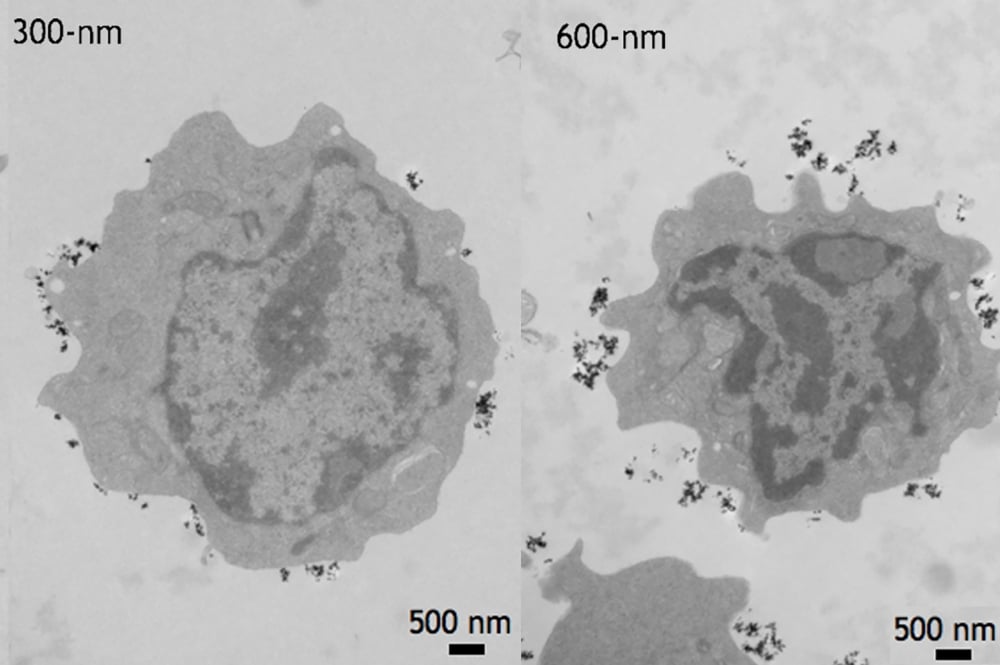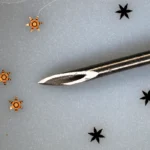Nano-sized Magnetic Artificial Cells for Cancer Immunotherapy and Diagnosis

A recently published study by an INBT research team from the labs of Hai-Quan Mao and Jonathan Schneck at the Johns Hopkins School of Medicine, shows that their design of new nano-sized artificial cells is effective at activating T cells, specialized immune cells, to destroy damaged and infected cells, as well as destroying cancer cells.
Top Photo: T cells with variously sized artificial nanoparticle cells attached.

John Hickey, Biomedical Engineering PhD Candidate.
The team, led by biomedical engineering graduate student John Hickey, designed new artificial cells, called artificial antigen-presenting cells (aAPCs), to mimic natural cells that activate T cells. In the body, T-cells are normally paused until an external stimulus tells them to turn on and eliminate damaged and/or infected cells. aAPCs are a technology developed for immunotherapy by stimulating the body’s immune system to eliminate foreign invaders, like cancer.
To properly activate the T cells using the artificial cells, the team needed to design an ideal sized cell that would work. This new design improves the potential for the artificial cells to be used for cancer immunotherapy because previously designed cells were often too large and could cause clumping and blockage in blood vessels. However, the team’s smaller cell design will not cause blockage, and simultaneously improves T cell activation.
In addition to being a potential immunotherapy, the artificial cells were designed to be magnetic and therefore can be used as a diagnostic tool to screen the body for immune responses to cancer using blood samples rather than extracting and culturing cells from tumors; a procedure that is invasive, time consuming, and expensive.
Their findings appeared in the October 2017 issue of the Nano Letters, a journal publication through the American Chemical Society. Read the full paper online.





